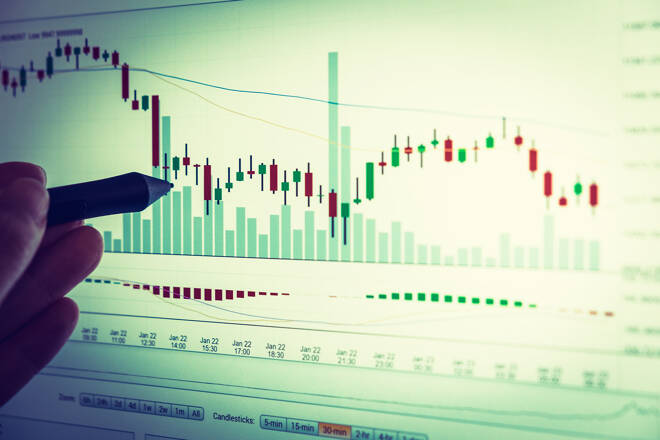Advertisement
Advertisement
The Market Reaction Function is Stuck in Neutral
By:
Unfortunately for equity investors, the surprisingly robust China GDP data failed to ignite a rally on Wall Street as US investors turn focus to domestic concerns.
The market was feeling a tad crowded above the psychologically critical S&P 2900 level on the back of a nonplused Beige Book report, and bustling health care stock retreat which led US stocks lower. Indeed the prospect of tighter regulatory reforms is causing the industry-wide rout.
So for today anyway, the broader market reaction function is stuck in neutral and even reversing, as investors are in a wait and see mode and increasingly more cautious about misconstruing a soft landing perhaps disguised as an economic upturn.
China effect
There was a wave of GDP revision higher on the back of yesterdays data, but the stronger data does also suggest that interest rates will be parked in neutral and RRR cut very unlikely in 2019.
Oil Markets
Oil prices slumped yesterday as US crude and gasoline inventories fell less than the market forecast.
But buyers were a bit hesitant from the get-go despite the stunner of China GDP print overnight, as policy ambiguity regarding US wavier on Iran crude oil are coming to the fore.
Traders are exercising a high degree of caution as the White House has been very cryptic with regards to policy which is potentially setting up the catalyst for prices to knee jerk lower if the administration decided to increase Iran waiver limits.
All the while talk of Moscow backing out of the voluntary production deal continues to percolate.
But from the macro perspective, the better than expected GDP from China strongly suggest China is on a soft-landing trajectory which should be supportive for oil prices in the broader scheme of things.
Gold Markets
Its messy trading low liquidity conditions where you’re more concerned about gap traps than anything else.
A bit of an odd day as snakebitten gold investor shy away from haven assets despite the S&P selling off below the psychological 2900 level.
So despite the moderate sell-off in US equity market gold bulls remain sidelined amid ongoing optimism over the US-China trade talks and definitive signs that China’s economy is stabilizing.
Currency Markets
Euro
A pick up in China’s economy is critical for the Eurozone. The Euro has been a story of contradictions but what is crucial for the single currencies fortunes is Chinas credit expansion which will ultimately bridge the difference between EU ” hard “data, which has steadily been improving and ” soft ” data which has been extremely slippery. If the market regains some degree of optimism about global growth, the soft data shoot higher, and the Euro can easily bridge the valuation gap and move closer to the 1.1700 level.
Meanwhile, risks of a ‘no deal Brexit’ have subsided, and Eurozone political tensions appear to have faded.
Focus shift to the Preliminary PMI prints in Europe and the US
Australian Dollar
A case of lather, rinse and repeat as the market is mired in the emptiness of this never end spin cycle.
Slowing domestic economy counters the push from a resurgent global growth environment.
I’m resigned to the fact my bullish Aussie commitment could be the ultimate grind trade of the year, but global growth tailwinds spurred on by a China credit expansion should ultimately push both currencies reasonably higher, but dovish local central banks will mollify these moves.
Malaysian Ringgit
Robust economic data from China neutralised the panic induced Ringgit sell-off that was triggered by a speculative research report suggesting investors would pull USD 8 billion out of Malaysian Bond market if the FTSE Russel excluded Malaysian Bonds for the Index.
Not even going to wade in on that one, but the fact that the Ringgit came bouncing back suggests investors are more inclined to disagree as this move would un.
Trader remains on BNM watch for hints of a potential policy shift.
This article was written by Stephen Innes, Head of Trading and Market Strategy at SPI Asset Management
About the Author
Stephen Innescontributor
With more than 25 years of experience, Stephen Innes has a deep-seated knowledge of G10 and Asian currency markets as well as precious metal and oil markets.
Advertisement
